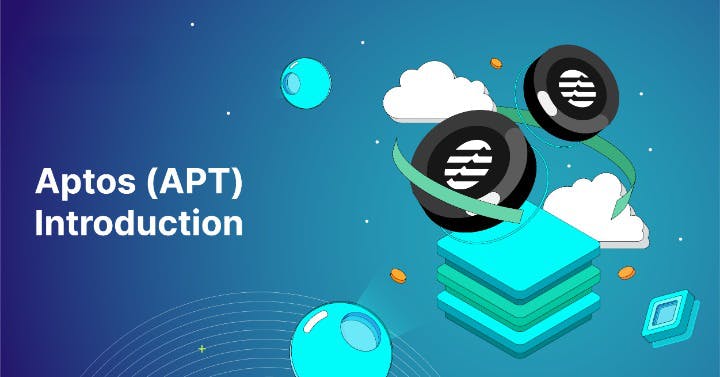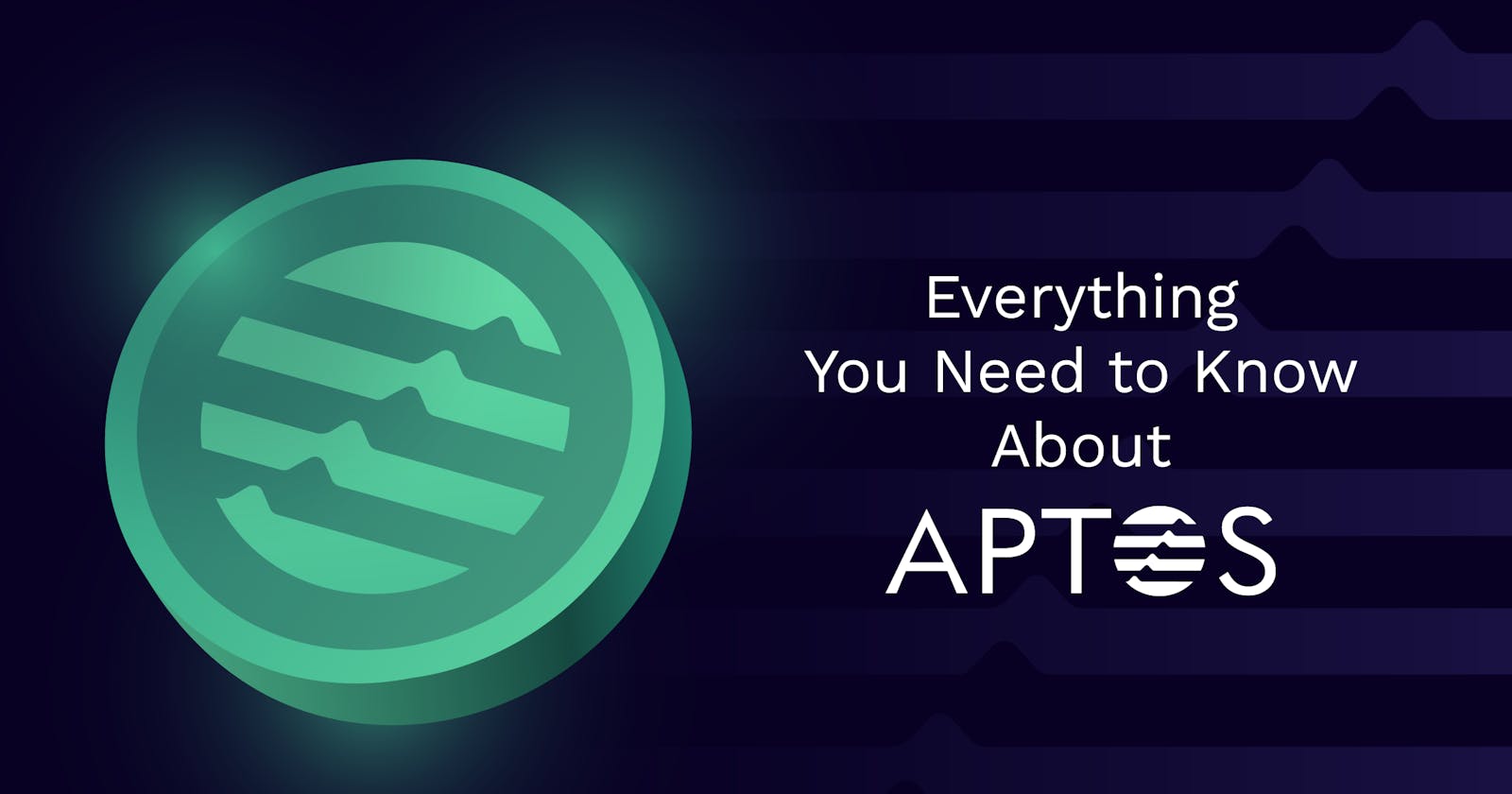Introduction

Blockchain technology continues to evolve, offering an array of platforms that cater to various needs. One such emerging player is Aptos, a blockchain protocol that boasts unique features and capabilities. In this article, we will dive into the world of Aptos and compare its offerings with other popular blockchain chains. By examining its developer resources, language support, and community contributions, we aim to shed light on the distinct advantages Aptos brings to the table.
Understanding Aptos
In the rapidly evolving landscape of blockchain technology, Aptos emerges as a robust and scalable platform that holds tremendous potential. This article aims to provide a comprehensive understanding of Aptos, exploring its features, architecture, and unique offerings. By delving into its core components, consensus mechanism, and developer-friendly environment, we will uncover the underlying power and versatility of Aptos.
Features of Aptos
Aptos offers a range of features that distinguish it from other blockchain platforms:
Scalability: Aptos is designed to handle high transaction volumes efficiently, ensuring seamless scalability for decentralized applications. Its underlying architecture and consensus mechanism enable fast and secure transaction processing.
Security: With a focus on robust security measures, Aptos incorporates advanced cryptographic techniques to protect user data and ensure the integrity of transactions. It employs secure programming languages and rigorous auditing processes to minimize vulnerabilities.
Smart Contract Functionality: Aptos supports the execution of smart contracts, empowering developers to build decentralized applications with complex business logic. Its smart contract capabilities enable automated, self-executing agreements, opening doors to a wide range of innovative use cases.
Architecture of Aptos
Aptos follows a layered architecture, consisting of the following components:
Application Layer: This layer encompasses decentralized applications (dApps) built on the Aptos platform. Developers leverage the Aptos software development kit (SDK) to create customized applications tailored to specific use cases.
Smart Contract Layer: Aptos utilizes a smart contract layer to facilitate the execution of smart contracts. Smart contracts are self-executing contracts with predefined rules and conditions that automatically trigger actions when specific conditions are met.
Consensus Layer: The consensus layer in Aptos ensures the agreement and validation of transactions across the network. It employs a consensus algorithm to maintain a single, consistent version of the blockchain ledger, enabling secure and decentralized decision-making.
Network Layer: The network layer handles the communication between nodes in the Aptos network. It facilitates the transmission of transactions, blocks, and other relevant information across the network.
Consensus Mechanism
Consensus mechanisms serve as the backbone of blockchain networks, ensuring agreement and validation of transactions across a decentralized system. Now we will take a deep dive into the world of consensus mechanisms, exploring their significance, functionality, and different types. By understanding the intricacies of consensus mechanisms, we can grasp their impact on blockchain security, scalability, and overall network efficiency.
The Importance of Consensus Mechanisms is that it plays a critical role in establishing trust, immutability, and decentralization in blockchain networks. They enable consensus among distributed participants without relying on a central authority, ensuring that all network nodes agree on the state of the blockchain. By achieving consensus, blockchain networks can validate and record transactions securely, fostering trust and transparency in a trustless environment.
Different Types of Consensus Mechanisms:
- Proof of Work (PoW):
Proof of Work is the first and most well-known consensus mechanism, pioneered by Bitcoin. In PoW, network participants, known as miners, compete to solve complex mathematical puzzles to validate transactions and add blocks to the blockchain. The computational power expended in solving these puzzles serves as proof of their work and secures the network. PoW ensures network security but requires significant computational resources, making it energy-intensive.
- Proof of Stake (PoS):
Proof of Stake is an alternative consensus mechanism that addresses the energy consumption concerns of PoW. In PoS, participants, known as validators, are chosen to validate blocks based on the number of tokens they hold and "stake" as collateral. Validators are incentivized to act honestly, as their staked tokens can be slashed for malicious behavior. PoS is more energy-efficient than PoW and enables faster block generation times, enhancing scalability.
- Delegated Proof of Stake (DPoS):
Delegated Proof of Stake is a variation of PoS where stakeholders vote for a limited number of trusted delegates to validate transactions on their behalf. These delegates, often referred to as witnesses or block producers, take turns creating blocks and maintaining the blockchain. DPoS provides faster transaction confirmations and increased scalability, as it delegates the responsibility of block creation to a selected few.
- Practical Byzantine Fault Tolerance (PBFT):
PBFT is a consensus mechanism suitable for permissioned blockchain networks where participants are known and trusted. PBFT requires a minimum number of validators to agree on the order of transactions before they are considered valid. It provides fast transaction finality, making it suitable for applications that require low latency and high throughput. However, PBFT is more centralized compared to other consensus mechanisms.
Developer Resources
Aptos, the robust and scalable blockchain platform, offers a comprehensive suite of developer resources to empower individuals and organizations to build innovative decentralized applications (dApps). Here, we will take a deep dive into the array of developer resources provided by Aptos, exploring the documentation, tutorials, libraries, and tools that facilitate the development process. By harnessing these resources, developers can unlock the full potential of Aptos and create groundbreaking blockchain solutions.
- Aptos Developer Documentation:
The Aptos Developer Documentation serves as a central hub for developers, providing extensive documentation and guides on various aspects of the platform. It covers topics ranging from the platform's architecture and core components to smart contract development, deployment, and integration. Developers can access detailed explanations, examples, and best practices to gain a solid understanding of Aptos and its capabilities.
- Move Examples:
Aptos provides a collection of Move examples on GitHub, showcasing a wide range of use cases and demonstrating the flexibility and versatility of the Move programming language. These examples serve as a source of inspiration and reference for developers, enabling them to explore different scenarios and leverage existing code snippets in their projects. Developers can study these examples to gain insights into the implementation of various smart contract functionalities on Aptos.
- Aptos Move Book:
The Aptos Move Book is a comprehensive guide that covers all aspects of Move development within the Aptos ecosystem. It offers in-depth explanations, tutorials, and practical insights into Move's syntax, types, modules, and more. This resource equips developers with the knowledge and skills needed to build robust and secure smart contracts on the Aptos platform. It serves as an essential reference for developers seeking to harness the full potential of Move in their blockchain projects.
Community Contributions
One of the key strengths of the Aptos blockchain platform lies in its vibrant and active community. The Aptos community actively contributes to the growth and development of the platform, fostering collaboration, innovation, and the expansion of the ecosystem. Now let us talk about the community contributions surrounding Aptos, exploring the valuable libraries, tools, integrations, and resources developed by community members. These community-driven contributions enhance the functionality, usability, and adoption of the Aptos blockchain, benefiting developers, businesses, and users alike.
- Open-Source Libraries:
The Aptos community has developed a wide range of open-source libraries that provide additional functionality and utilities for developers. These libraries cover various aspects of blockchain development, including smart contract frameworks, cryptographic tools, token standards, and decentralized finance (DeFi) protocols. Developers can leverage these libraries to accelerate their development process, reduce redundancy, and tap into tested and trusted code. The collaborative nature of open-source development ensures continuous improvement and innovation within the Aptos ecosystem.
- Tools and Integrations:
Community members have developed tools and integrations that simplify and enhance the development experience on the Aptos blockchain. These tools include development environments, testing frameworks, deployment utilities, and developer-friendly interfaces. Integrations with popular development tools, such as IDE plugins and package managers, further streamline the workflow and allow developers to seamlessly incorporate Aptos into their existing development processes. The availability of these tools and integrations encourages broader adoption and enables developers to focus on building innovative solutions.
- Educational Resources:
The Aptos community recognizes the importance of education and knowledge-sharing. As a result, community members have created educational resources, tutorials, and documentation to help developers understand and navigate the intricacies of the Aptos blockchain. These resources cover a wide range of topics, including smart contract development best practices, security considerations, and advanced concepts. They empower developers with the knowledge and skills needed to build robust and secure applications on the Aptos platform. The collaborative nature of these educational resources ensures that developers can tap into the collective wisdom of the community.
- Community-Led Projects:
The Aptos community is known for its entrepreneurial spirit, leading to the development of various community-led projects. These projects range from decentralized applications (dApps) and blockchain-based services to innovative solutions addressing real-world challenges. By leveraging the capabilities of the Aptos blockchain and collaborating within the community, these projects showcase the transformative potential of blockchain technology. They serve as inspiration and practical examples for other developers looking to explore the possibilities of the Aptos platform.
Aptos vs. Established Blockchains

By examining key factors such as scalability, consensus mechanisms, smart contract capabilities, developer resources, and community support, we will uncover the exceptional value that Aptos brings to the table.
- Scalability:
Aptos distinguishes itself with its scalability features, enabling high transaction throughput and efficient network performance. Its architecture and underlying consensus mechanism ensure that Aptos can handle increased transaction volumes without compromising security or decentralization. This scalability advantage positions Aptos as a suitable choice for applications that demand rapid and efficient processing of transactions.
- Consensus Mechanisms:
Different blockchain chains employ various consensus mechanisms to validate transactions and maintain network integrity. Aptos utilizes the Proof of Stake (PoS) consensus mechanism, which ensures energy efficiency, faster block generation times, and increased security. This consensus mechanism allows users to stake their tokens to participate in the validation process, promoting a more inclusive and sustainable blockchain ecosystem.
- Smart Contract Capabilities:
Smart contracts serve as the building blocks of decentralized applications, enabling the execution of self-executing agreements with predefined rules and conditions. Aptos provides robust smart contract capabilities, allowing developers to build complex and secure applications with ease. With the support of the Move programming language, developers can leverage Aptos' smart contract functionality to create innovative solutions while ensuring code correctness and security.
- Developer Resources:
Aptos distinguishes itself by offering a rich array of developer resources. The Aptos Developer Documentation provides comprehensive guidance, covering various aspects of the platform, including architecture, smart contract development, and deployment processes. The Move by Example resource offers practical examples and tutorials for developers to gain hands-on experience with the Move programming language. These resources empower developers to fully leverage the capabilities of Aptos and expedite their development process.
- Community Support:
The strength of a blockchain ecosystem often lies in its community support. Aptos has fostered an active and engaged community that contributes to the growth and development of the platform. The community-driven resources, such as open-source libraries, tools, and educational materials, enhance the functionality and usability of Aptos. This collaborative environment encourages innovation, knowledge-sharing, and the creation of community-led projects that showcase the platform's potential.
Conclusion

Aptos stands out among other blockchain chains due to its scalability, efficient consensus mechanism, robust smart contract capabilities, comprehensive developer resources, and strong community support. Its focus on scalability, energy efficiency, and developer-friendly features positions Aptos as a powerful platform for building decentralized applications. By harnessing these advantages, developers can create innovative solutions, benefit from an inclusive consensus mechanism, and leverage an active community for collaboration and support. As the blockchain landscape continues to evolve, Aptos emerges as a promising contender, empowering developers to build transformative solutions and shape the future of decentralized applications.
